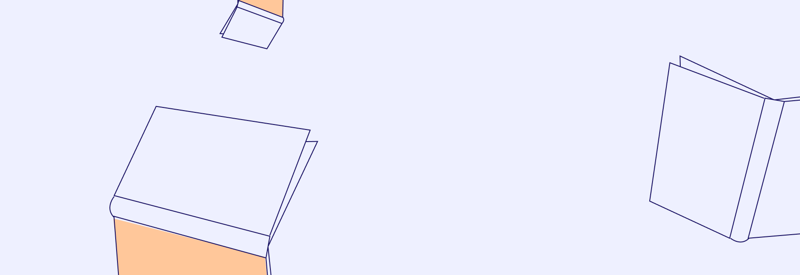The role of intuition in nurse decision making

Defining intuition in nursing
Intuition is a tool that nurses use in their clinical practice. A better understanding of intuition and the ways in which it can be effectively applied in healthcare ensures high-quality and safe patient care. Intuition is referred to as a ‘gut feeling’, or a ‘knowing without reason’ (Hassani et al, 2016) that nurses use to supplement decision-making processes. Melin-Johansson et al (2017) defined intuition as a rapid evaluation and synthesis of knowledge and experience.
This article explores the definition of intuition in healthcare, how and when it is used in nursing, as well as the advantages and pitfalls of its use.
The role of intuition in nursing
Intuition is used alongside clinical tools and frameworks to help nurses make clinical decisions. Tanner (2006) noted that intuition plays an important role in recognising patterns in practice and similarities between scenarios in nurses’ clinical judgement.
Benner and Tanner (1987) mapped the Dreyfus model of six key aspects of intuitive judgement in their interviews of experienced nurses. Many of the aspects identified related directly to past experiences of similar scenarios and its function as a synthesis of knowledge and holism of assessment, in contrast to the analytical aspects of practice (eg clinical tools and physiological markers of health). Subtle changes in patient behaviours and the feeling that ‘something is not right’ often prompts further investigation and possible intervention for patients.
Intuition allows nurses to discern information that is pertinent and relevant among the ‘noise’ of other factors the nurse perceives in their engagement with patient and the environment. According to Benner and Tanner (1987), intuition helps nurses to engage with unstructured situations, where existing tools or guidelines may be less useful. However, the nurse may be using this intuition without explicitly understanding that they are doing so.
This may explain why nurses with more years of clinical experience are more likely to report that they rely on a sense of intuition when making decisions in practice than other forms of knowledge, because of the greater wealth of information they can draw on (Pretz and Folse, 2011).
Factors influencing the use of intuition
According to Anton et al (2021), one of the most prominent factors that influences intuition is the nurse’s experience in handling similar cases or presentations. A study by Traynor et al (2010) found that nurses were able to use their wealth of experience in conjunction with clinical tools to properly identify and make decisions in clinical care. This experience may help them to subconsciously identify patterns which have surfaced in previous identical or similar scenarios to inform their decisions and subsequently initiate prompt management or escalation (Anton et al, 2021).
Turan et al (2019) identified that a nurse’s high level of emotional intelligence (ie managing their emotions and recognising the emotions of those around them) might contribute to their use of intuition in clinical decision making. Emotional intelligence has been associated with increased levels of self-awareness, perception and effective communication skills (Turan et al, 2019), which are useful tools in recognising and diagnosing patients’ needs (Deshpande and Joseph, 2008).
Research conducted on intuitive decision making among nurses in Iran about patients with COVID-19 demonstrated that the nurses based their decisions on holistic awareness, which was grouped into physical, psychological and situational awareness (Aghajani et al, 2021). Physical awareness was based on specific physical changes the nurses could see in the patient’s symptoms, such as changes in respiratory pattern, which prompted them to act immediately. The tension, anxiety and concern regarding a patient’s symptoms or illness and a sense of responsibility towards providing the best possible care created a psychological and situational awareness, which caused nurses to be more cautious and encouraged use of intuition (Aghajani et al, 2021).
Advantages and pitfalls of intuition
Intuition can provide nurses with access to a more tacit knowledge base (knowledge gained through lived experience that may not be acknowledged) to supplement their clinical reasoning, with the two working in tandem to enable holistic assessments of patients (Gorick et al, 2023). By accessing their intuitive knowledge, nurses can identify problems with patients more quickly and with a greater depth of understanding of the individual implications for the patient (Melin-Johansson et al, 2017).
While intuitive decisions can be useful, there is a need to validate the assessments with empirical evidence to ensure the right decision is being made and avoid misinterpretations (Wolf et al, 2018). This helps to prevent ‘anchoring’, which is when nurses land on intuition-based decisions without considering other options as new information presents (Smyth and McCabe, 2017). Supplementing intuition with empirical evidence also helps nurses to avoid potential biases in their decision making (Thirsk et al, 2022).
Conclusions
Ensuring that nurses are empowered to properly use and improve their intuitive abilities is an important, but often neglected, component of healthcare practice. Measuring intuitive abilities is difficult given the complexities of the factors involved, which also makes it difficult to identify ways in which a nurse can develop their intuitive abilities. Nursing practice would benefit from increased research into the role of intuition, and ways in which this can be developed to improve patient care.
References
Aghajani M, Taghadosi M, Mirbagher Ajorpaz N. Intuitive decision-making by Iranian nurses of patients with COVID-19: a qualitative study. J Caring Sci. 2021;11(3):154-162. https://doi.org/10.34172/jcs.2022.04
Anton N, Hornbeck T, Modlin S, Haque MM, Crites M, Yu D. Identifying factors that nurses consider in the decision-making process related to patient care during the COVID-19 pandemic. PLoS One. 2021;16(7):e0254077. https://doi.org/10.1371/journal.pone.0254077
Benner P, Tanner C. Clinical judgment: how expert nurses use intuition. Am J Nurs. 1987;87(1):23-31.
Deshpande SP, Joseph J. Impact of emotional intelligence, ethical climate, and behavior of peers on ethical behavior of nurses. Journal of Business Ethics. 2008;85(3):403-410. https://doi.org/10.1007/s10551-008-9779-z
Gorick H, McGee M, Wilson G, et al. Understanding triage assessment of acuity by emergency nurses at initial adult patient presentation: a qualitative systematic review. Int Emerg Nurs. 2023;71:101334. https://doi.org/10.1016/j.ienj.2023.101334
Hassani P, Abdi A, Jalali R. State of science, ‘intuition in nursing practice’: a systematic review study. J Clin Diagn Res. 2016;10(2):JE07-JE11. https://doi.org/10.7860/JCDR/2016/17385.7260
Melin-Johansson C, Palmqvist R, Rönnberg L. Clinical intuition in the nursing process and decision-making-A mixed-studies review. J Clin Nurs. 2017;26(23-24):3936-3949. https://doi.org/10.1111/jocn.13814
Pretz JE, Folse VN. Nursing experience and preference for intuition in decision making. J Clin Nurs. 2011;20(19-20):2878-2889. https://doi.org/10.1111/j.1365-2702.2011.03705.x
Smyth O, McCabe C. Think and think again! Clinical decision making by advanced nurse practitioners in the emergency department. International Emergency Nursing. 2017;31:72-74. https://doi.org/10.1016/j.ienj.2016.08.001
Tanner CA. Thinking like a nurse: a research-based model of clinical judgment in nursing. J Nurs Educ. 2006;45(6):204-211. https://doi.org/10.3928/01484834-20060601-04
Thirsk LM, Panchuk JT, Stahlke S, Hagtvedt R. Cognitive and implicit biases in nurses' judgment and decision-making: A scoping review. Int J Nurs Stud. 2022;133:104284. https://doi.org/10.1016/j.ijnurstu.2022.104284
Traynor M, Boland M, Buus N. Autonomy, evidence and intuition: nurses and decision-making. J Adv Nurs. 2010;66(7):1584-1591. https://doi.org/10.1111/j.1365-2648.2010.05317.x
Turan N, Özdemir Aydın G, Özsaban A et al. Intuition and emotional intelligence: a study in nursing students. Cogent Psychology. 2019;6(1):1633077. https://doi.org/10.1080/23311908.2019.1633077
Wolf LA, Delao AM, Perhats C, Moon MD, Zavotsky KE. Triaging the emergency department, not the patient: United States emergency nurses' experience of the triage process. J Emerg Nurs. 2018;44(3):258-266. https://doi.org/10.1016/j.jen.2017.06.010
